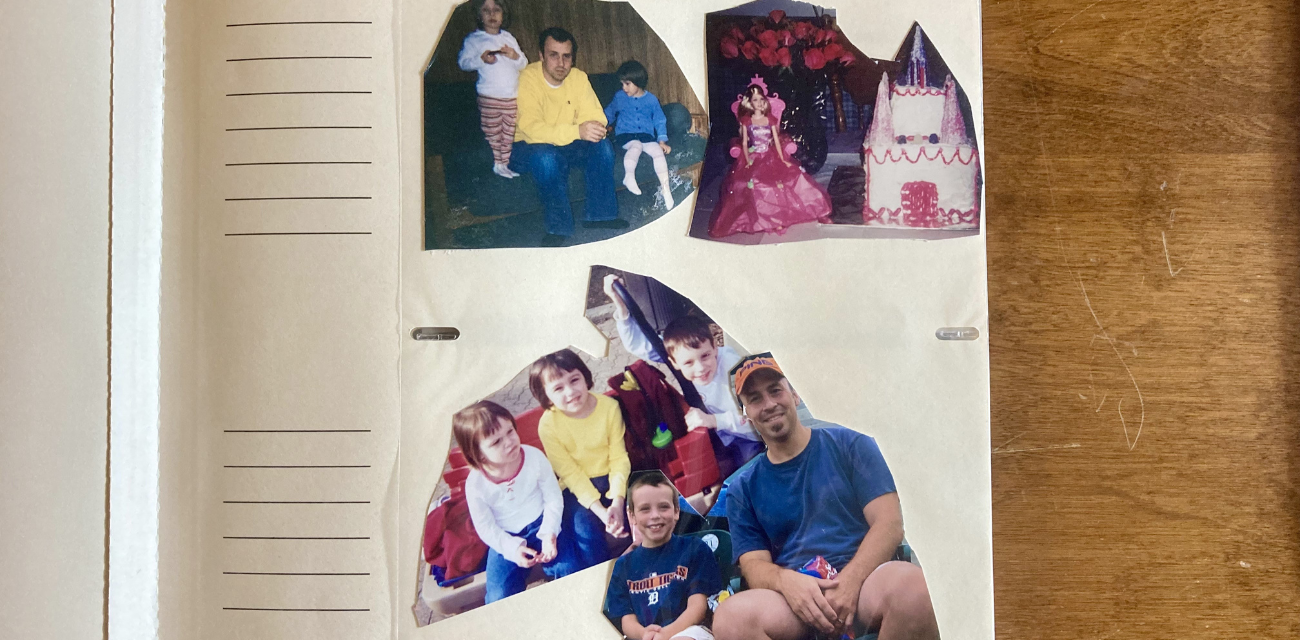How 15 words have kept Michigan stuck in 2006

Authored by
Right now, the Great Lakes State can only protect its namesake with 20-year-old thinking
Back in 2006, this writer (pictured above in the Tiger’s shirt and gray long sleeve) was learning his multiplication tables. His mom had taken his first-day-of-school pictures with a digital camera, and when he wasn’t feeling well in class, he’d call the home landline. He was a bit jealous of his classmates, who could watch cartoons on cable. Some even had the internet on their family computers.
That’s all to say, the mid-2000s were a longer time ago than we think. Our technology has advanced and (aside from Y2K’s baggy fashion being en vogue) so has our society.
And yet, this is the era the Michigan Department of Environment, Great Lakes, and Energy (or EGLE) is stuck in at no fault of their own. Through a sneaky law passed by politicians, they’ve been unable to properly protect Michigan’s waters from pollution.
Whatever protections were in place in 2006—the year the law took effect—are the same protections Michigan, at most, can have in many cases. No additional chemicals can be deemed dangerous. More stringent rules are not allowed. Technological advancements and new understandings be darned.
It’s concerning. In 2006, the Flint Water Crisis hadn’t happened. The extent of PFAS and microplastics in our water was yet to be discovered. Much like our musical tastes in nu metal, our understanding of and response to water pollution has dramatically changed over the past 20 years. Our laws have not.
And get this: Just 15 words changed it all.
The sentence
What’s now known as EGLE was created decades ago to protect our waters from pollution that could devastate ecosystems and human bodies alike. Its thousands of employees were and still are guided by a set of laws that give them their charge.
These laws are what allow EGLE’s scientists to study substances and clean up rivers. They allow EGLE’s public servants to deem certain chemicals as pollutants and set restrictions around them to prevent further contamination and clean up what’s already been created.
We expect this of our environmental department. Legislative leaders in 2004 apparently did not.
They used the power of a legislative majority to pass a law and convince their opposite-party governor, Jennifer Granholm, to sign it. It added 15 words to a 22,000-word law called Part 31, which in turn is part of the almost unfathomably massive Natural Resources and Environmental Protect Act that gives EGLE much of its water protection powers.
Those 15 words: “The department shall not promulgate any additional rules under this part after December 31, 2006.”
What does that phrase mean?
Since 2006, other states can quickly close beaches when bacteria appear thanks to new technology. We can’t.
Since 2006, algal blooms in the Great Lakes have gotten worse. Other states can spark action by setting stricter limits on the contaminants that cause the blooms. We can’t.
Since 2006, PFAS and other chemicals have been discovered in waters across the nation. Other states can designate these chemicals as dangerous and act accordingly. We can’t.
Since 2006, the federal government has upped the standards for wastewater treatment, and local plants are itching to make upgrades so they can serve cleaner water. But Michigan plants largely can’t.
Fifteen absurd words have prevented additional pollution protections. It’s had one of the most expansive impacts on our water this century.
And that’s just one part of the larger polluter rulebook legislators created. They prevented EGLE from setting laws stricter than the federal government’s. They revoked EGLE’s ability to make corporations clean up their messes. They created committees of mostly industrial leaders to slow down environmental efforts.
The red pen
Michiganders may have a bad view of our state environmental department. They may see EGLE as a bureaucratic blunderer that can only half-do its protective duties. The Great Lakes State can’t properly protect its namesake.
It’s a legitimate critique, but it’s hard for EGLE’s public servants to do what they were hired to do when quiet, years-old laws took the bite out of what was once was a sharp-toothed department.
To give EGLE its power back, we must undo the laws that have made it somewhat toothless. To get that, we must take a red pen to those 15 words added to our 22,000-word-long water protection law.
Rep. Emily Dievendorf (D-Lansing) introduced a bill in 2023 that would take a red pen to those words. It would allow EGLE to do what it was created to do.
We have six months to help them turn it into law. Join us on a journey to learn all about this issue and what we can do to change it. Old laws, as you’ll find out, are already falling. We have full confidence these 15 words will, too.
EGLE dramatically changed in 2006. We as people have dramatically changed since 2006. These, if anything, are proof we can change again.
Discover
Power environmental change today.
Your gift to the Michigan Environmental Council is a powerful investment in the air we breathe, our water and the places we love.
Sign up for environmental news & stories.
"*" indicates required fields




